
The international conference that Switzerland doesn’t want but must organise
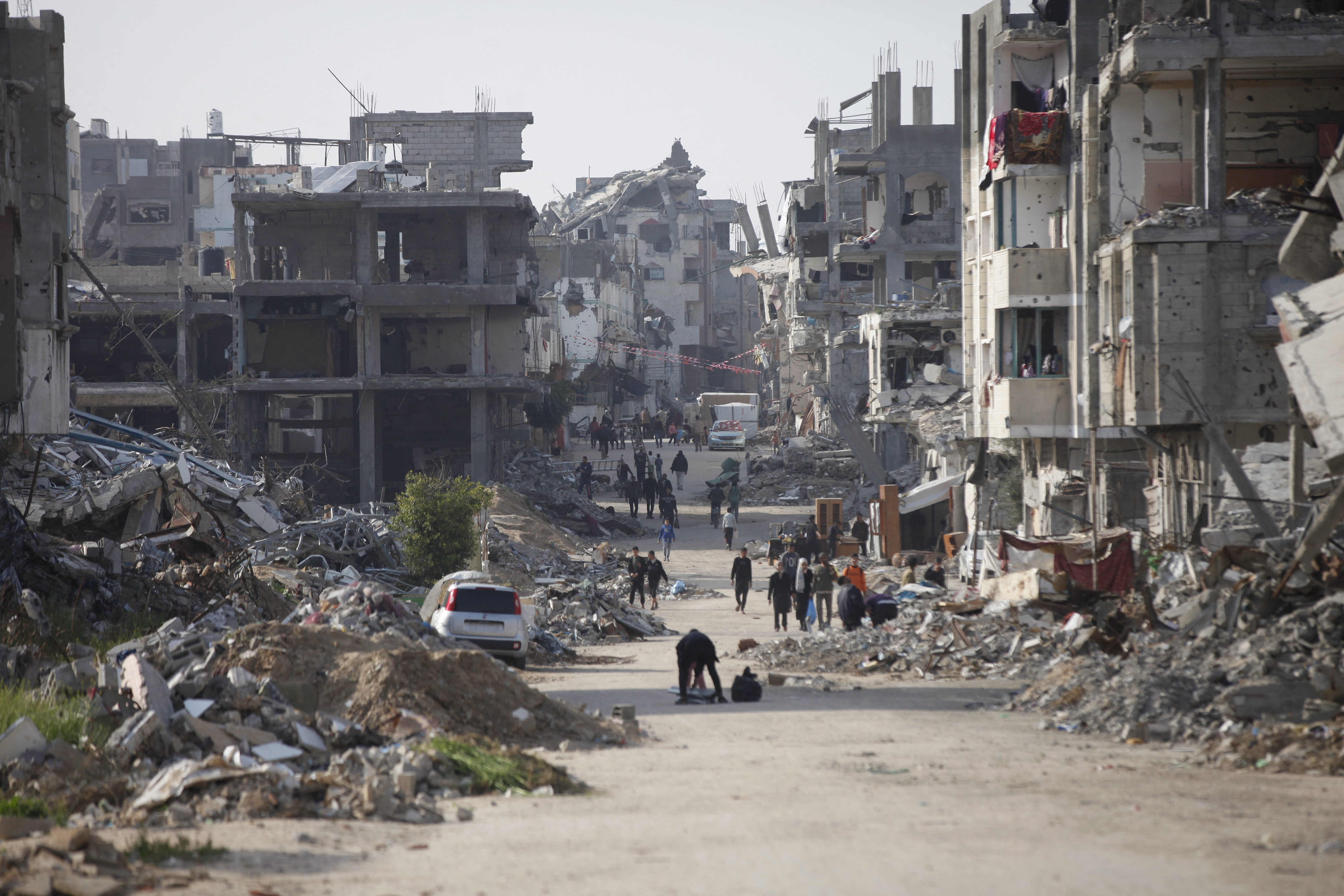
Switzerland is set to host a conference on the occupied Palestinian territories on Friday. Keen to avoid taking a position on the Middle East conflict, the neutral Alpine state has little to gain from organising this international gathering but perhaps much to lose.
On March 6, Switzerland said it cancelled the conference on the application of the Geneva Conventions to the occupied Palestinian territories for want of participants. It said some countries had expressed dissatisfaction on the final declaration set to be published on Friday.
Six months ago, the United Nations General Assembly asked Switzerland to organise a conference on the fourth Geneva Convention, which offers protection to civilians in armed conflicts, to address the situation in the occupied Palestinian territories. The request was triggered by the Israeli-Palestinian war, which was still raging at the time.
The four Geneva ConventionsExternal link form the core of international humanitarian law and protect persons who are not, or are no longer, participating in hostilities. They apply in the Palestinian Territories, the Gaza Strip and the West Bank, including East Jerusalem, which has been occupied by Israel since 1967.
The conference planned on March 7 focuses on the Fourth Geneva Convention, which protects civilians in war, prohibits forced displacement and settlements in occupied territories, and regulates the behaviour of an occupying power. As the depositary state of the Conventions, Switzerland is at the service of the contracting states and is committed to impartiality.
Switzerland is used to organising international high-level meetings. But whereas the Summit on Peace in Ukraine was held in central Switzerland last June amid great pomp, attempts have been made to keep a low profile about the latest meeting in Geneva. Officials insist it is a technical-level conference, without any big names or binding resolutions.
Even when the UN mandated Switzerland to convene a conference of the states parties, Bern knew that it wouldn’t profit much from the gathering. Today, Swiss diplomats fear that they could even lose a great deal.

More
Middle East conference in Geneva aims to revive international humanitarian law
The Swiss foreign ministry has become increasingly nervous in recent weeks. Israel has condemned Switzerland for hosting the event, which it sees as “part of the legal warfare against Israel”.
The Permanent Mission of Israel to the UN in Geneva said that the Swiss decision to convene the conference “at this sensitive juncture demonstrates that this conference serves merely as another platform to attack Israel, a democratic country, and embolden terrorist organizations that have shown utter disregard for humanity and the law”. It also comes at a time when Israel enjoys close ties with the new Trump administration in the United States.
This is another reason for Switzerland’s cautious approach – right now, on the international stage, everything has the potential to become a diplomatic bargaining chip. In Bern, the main worry is American tariffs on Swiss exports. As a neutral country, Switzerland generally tries to remain under the radar of the major players at periods of geopolitical upheaval.
Attempting to shape the narrative
The Swiss foreign ministry is thus trying to organise the conference in a way that causes as little offence as possible. This begins with its official titleExternal link. The term “Conference of High Contracting Parties to the Geneva Conventions” is not the same as “Middle East Conference” – which is how it is labelled, especially by the pro-Palestinian side, and where the link to the bloody conflict is more obvious.
It was Palestine that introduced a resolution in the UN General Assembly last September calling for the event to be held. This was after the International Court of Justice ruled in a report requested by the General Assembly that Israel’s continued presence in the occupied Palestinian territories, including East Jerusalem, since 1967 is illegal and must end as quickly as possible.
In the run-up to the meeting, it’s been reported that no specific examples or current conflicts will be discussed or even mentioned in Geneva. This appears consistent with Switzerland’s position, as the country abstained from voting on the UN resolution, arguing it went too far. In general, Switzerland is in favour of a two-state solution and stresses that the “illegality of the Israeli occupation of Palestinian territory, which has been ongoing since 1967, is beyond doubt”.
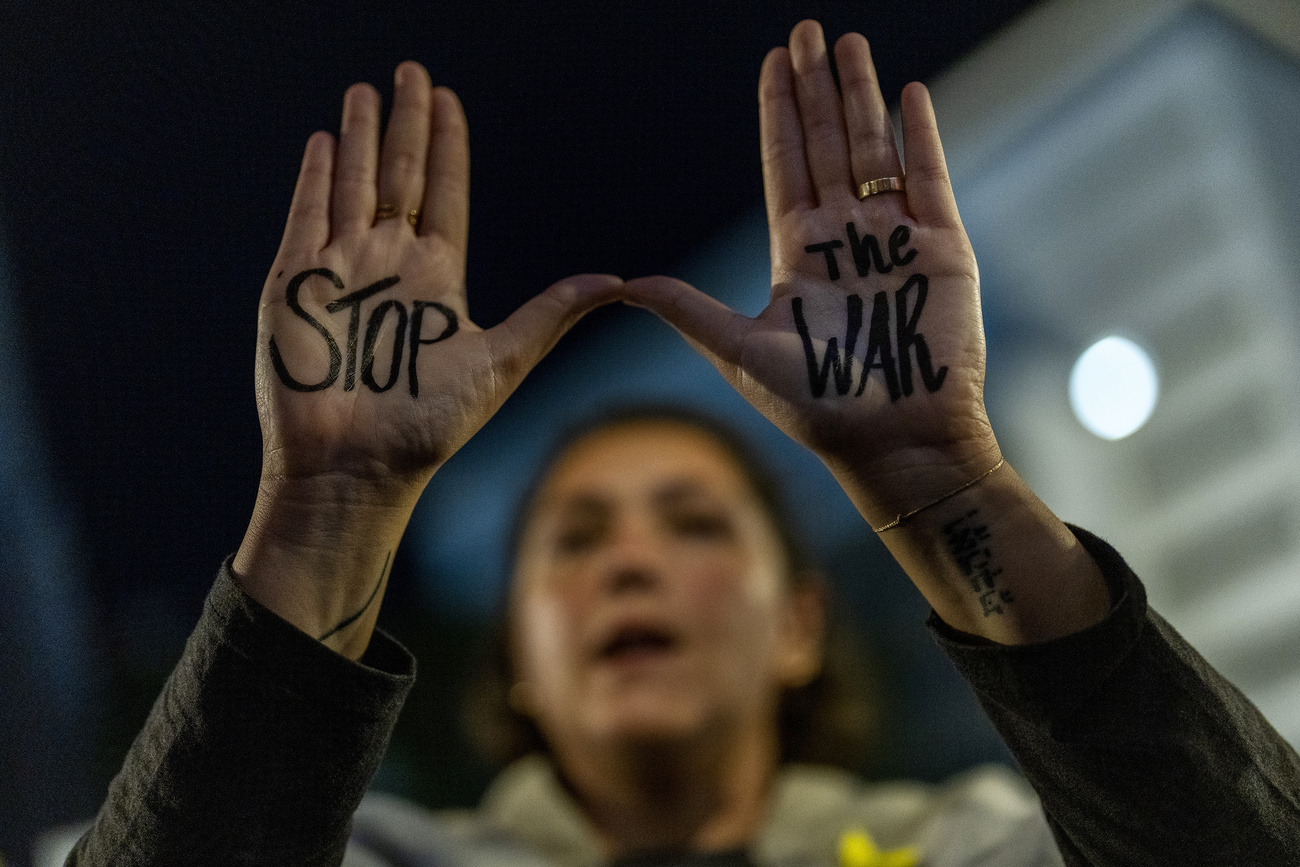
More
Switzerland to host Middle East conference on international humanitarian law
Such political manoeuvring by Switzerland is typical when it comes to the Middle East conflict, which is full of legal and political pitfalls. The best recent example is funding for the United Nations Relief and Works Agency for Palestine Refugees in the Near East (UNRWA), which was temporarily frozen and then cut. The cancellation of the remaining UNRWA funding is currently being discussed in the Swiss parliament. If approved, Switzerland would be the first country to do something like this. Ending support for UNRWA is likely to cause diplomatic ructions, especially in the Arab world.
The goals are not ambitious
Several diplomatic sources in Geneva and Bern have confirmed that preparations for the conference were difficult. This is partly linked to the toxicity of the conflict, which is a source of controversy worldwide and of all kinds of political agitation; this has long been evident in international organisations.
In this case, the timing of the gathering is also tricky. The situation is volatile. Although a fragile ceasefire is holding in Gaza, Israel has temporarily banned the import of aid and violence has been increasing in the West Bank for months. Bern and other European capitals fear the conference could have a negative impact on the conflict.
However, there is no alternative, as Switzerland has to organise this conference within a deadline set by the UN. The outcome – this much can be surmised in advance – will be open to interpretation both domestically and internationally. Either it will be read as pro-Palestinian and anti-Israeli, or as anti-Palestinian and pro-Israeli.
Switzerland has invited all 196 states that have signed the Geneva Convention to participate. The attendance of at least 128 states would probably be considered a success – that is how many took part in the last conference in Geneva. After 1999, 2001 and 2014, this is now the fourth gathering on this topic. The participating states mainly want to remind everyone that international humanitarian law must be observed. This time, however, the situation is much bloodier than in the past.
Edited by Balz Rigendinger. Adapted from German by Simon Bradley/gw

More
Our weekly newsletter on foreign affairs

In compliance with the JTI standards
More: SWI swissinfo.ch certified by the Journalism Trust Initiative






















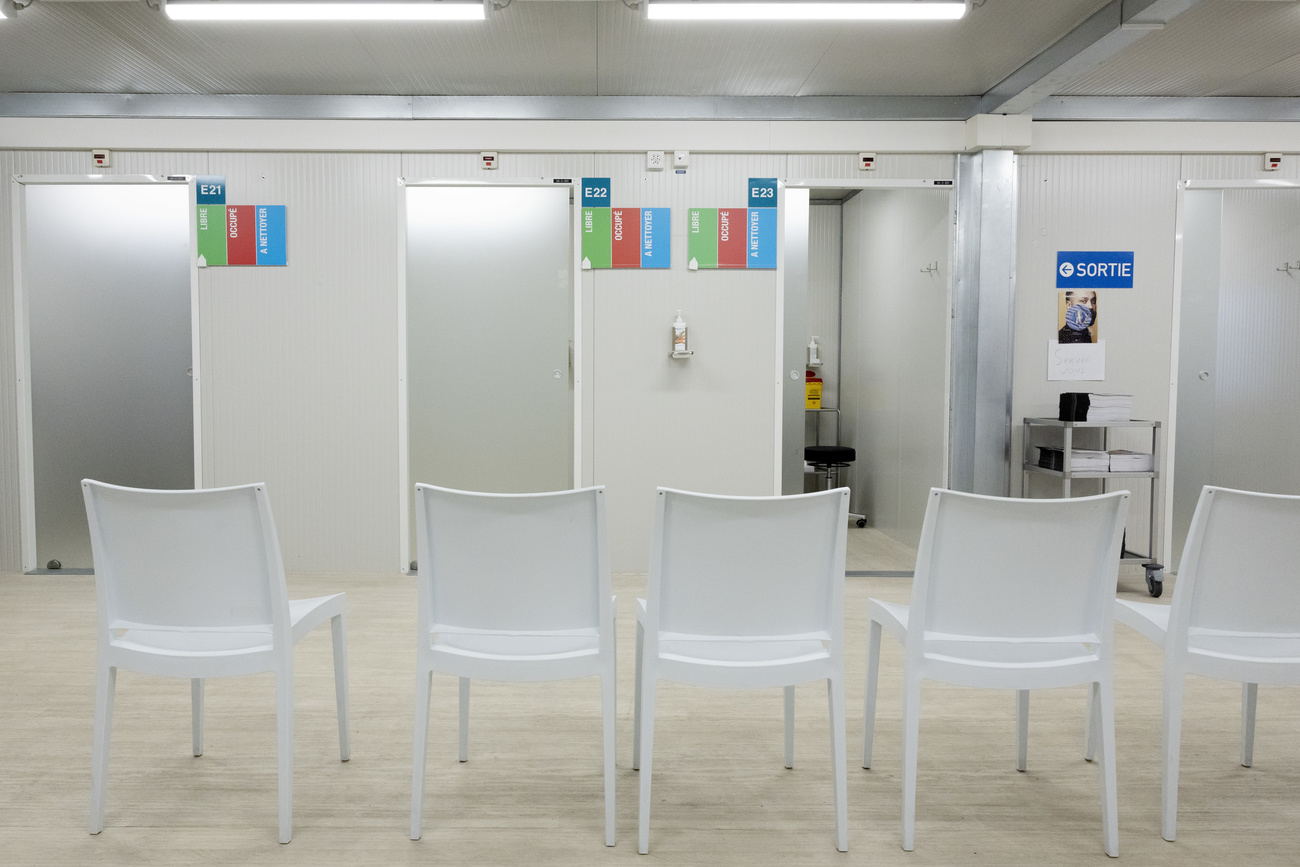













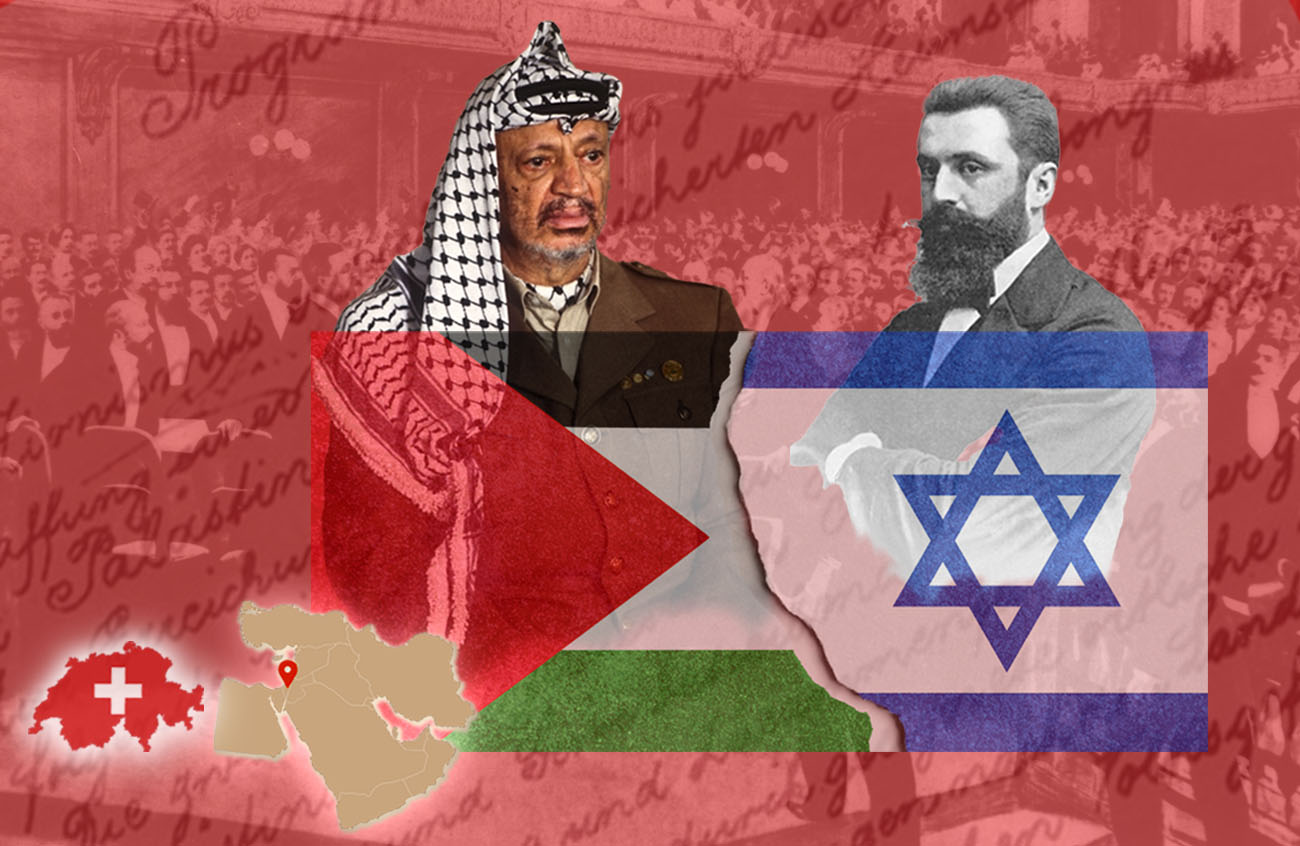


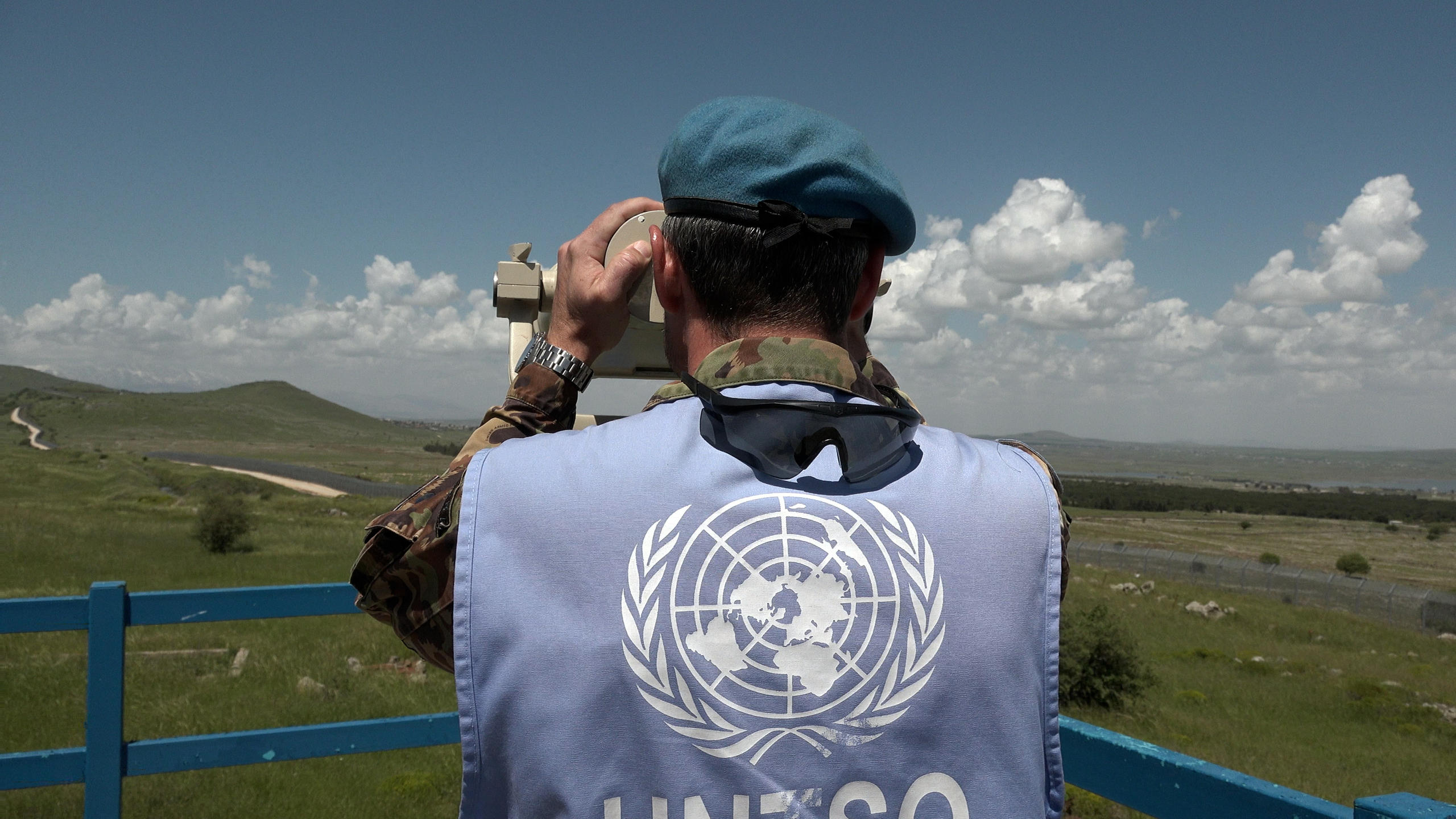


You can find an overview of ongoing debates with our journalists here . Please join us!
If you want to start a conversation about a topic raised in this article or want to report factual errors, email us at english@swissinfo.ch.